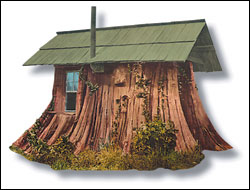The following is adapted from Mossback’s remarks at “An Uncensored Celebration,” an American Civil Liberties Union event during Banned Books Week (through Saturday, Oct. 2) featuring members of Book-it Repertory Theatre reading from works that have been threatened with censorship in schools or public libraries. The event was Monday, Sept. 27, at the Intiman Theatre.
Every year, Project Censored at Sonoma State University (www.projectcensored.org) releases a list of the top 25 “censored” stories of the year.
What is a censored story? They define it this way on their Web site:
“Project Censored compiles an annual list of 25 news stories of social significance that have been overlooked, under-reported or self-censored by the country’s major national media.”
The project’s catchy title, then, is a bit of a misnomer: It’s not that these stories have been unreported or banned outright; the criterion is that Project Censored thinks that each is an important story that hasn’t been reported enough.
Topping the list for 2004 are (1) “The neoconservative plan for global domination” and (2) “Homeland security threatens civil liberties.”
Now I suspect most of us have heard, seen, or read stories on these important topics. They are hardly a secret. For “censored” stories, they’re pretty ubiquitous. They might have appeared in Harper’s or Mother Jones or papers like Seattle Weekly or on PBS. But they’re still considered “censored” if they haven’t been broadcast by the big guys like CNN or CBS, or written up in The New York Times. So how can a story that has been reported, published, distributed, heard, and read be “censored?”
I guess “Project Underplayed” just doesn’t sound very sexy.
That’s not to say that censorship in this country isn’t real. Sometimes it’s intentional, sometimes it’s inadvertent. Books are barred from schools or library collections, yes. But often important stories get lost in the shuffle. Sometimes, they simply don’t resonate with people and are ignored. They fall off the radar screen, or upon deaf ears.
That, to me, is the important reminder of Project Censored. It reminds us that one kind of censorship is ignorance. Call it pre-emptive censorship.
It is easy to be righteously outraged by the book burners, but what about the incurious? What about the people who never open a book? Or never ask a question? Who never look or listen? Who never think for themselves?
It is absolutely true that the American media blow and ignore major stories. The Weapons of Mass Destruction in Iraq debacle is one dramatic recent example—one for which the major media were busted, thanks, in large part, to the minor media: the critics and bloggers who refused to let them get away with it.
But the worst censorship trend isn’t that people are being prevented from publishing or broadcasting or posting on the Web their thoughts, ideas, and stories—even their penis sizes. Some argue that we live in the age of “too much information.”
The real censorship problem is that we’re cultivating a society that values and rewards ignorance.
Many of our public schools are run like prisons; we give people jobs that require them to be drones; we reward idiocy with celebrity and power.
There’s a man in the White House who is emblematic of this state of our nation. He is proudly and profoundly incurious; he brags that he does not read the papers; he cares little for what anyone else in the world thinks; his chief advisers are the god inside his head and a man who hides in bunkers. He appears to have convinced a slim majority of the American people that his strength—and our strength—is predicated on knowing as little as possible.
This is America’s greatest “intelligence failure.”
But his kind is not confined to the White House, the Justice Department, the Pentagon, or Congress. Willful ignorance affects editors and reporters and producers and talk-show hosts as well—the very people who are supposed to be informing us. Doing original work, thinking for yourself, expanding your own horizons, questioning authority—these activities are unprofitable and unproductive. Thinking is hard. So is getting off your butt. Dumbing down is easier.
None of us is off the hook for this state of affairs. The fight against censorship begins within each of us. We have to take on our own tendency to slide into the stupor of self-satisfaction. We must mount an inner resistance movement against the cultural and political forces that reassure us that ignorance is bliss—or at least will make us safer and lower our taxes.
You don’t have to burn books if no one wants to read them. You don’t have to shut down newspapers if no one buys them. You don’t have to cancel the evening news if no one is watching. “The Freedom to Read” means nothing if it isn’t exercised.
If we remain as we are, the censors win—without lifting a finger. Or lighting a match.







